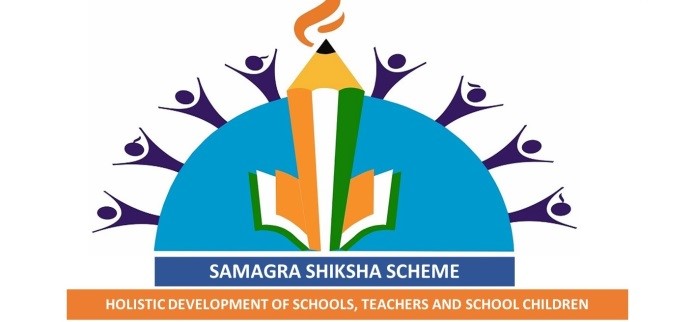- SamagraShiksha, an overarching programme for the school education sector extending from preschool to Class 12 was formulated in 2017 with the broader goal of improving school effectiveness measured in terms of equal opportunities for schooling and equitable learning outcomes by subsuming the three erstwhile Schemes of SarvaShikshaAbhiyan (SSA), RashtriyaMadhyamikShikshaAbhiyan (RMSA) and Teacher Education (TE).
- The scheme is in accordance with the Sustainable Development Goal for Education (SDG-4).
The Government has approved the continuation of the revised SamagraShiksha Scheme for a period of five years i.e., from 2021-22 to 2025-26 with a total financial outlay of Rs.2,94,283.04crore which includes a Central share of Rs.1,85,398.32 crore. SamagraShiksha has been fully aligned with the recommendation of the National Education Policy 2020.
The major objectives of the Scheme are:
- (i) Support States and UTs in implementing the recommendations of the National Education Policy 2020 (NEP 2020);
- (ii) Support States in implementation of Right of Children to Free and Compulsory Education (RTE) Act, 2009;
- (iii) Focus on Early Childhood Care and Education.
- (iv) Emphasis on Foundational Literacy and Numeracy;
- (v) Thrust on Holistic, Integrated, Inclusive and activity based Curriculum and Pedagogy to impart 21st century skills among the students;
- (vi) Provision of quality education and enhancing learning outcomes of students;
- (vii) Bridging Social and Gender Gaps in School Education;
- (viii) Ensuring equity and inclusion at all levels of school education;
- (ix) Strengthening and up-gradation of State Councils for Educational Research and Training (SCERTs)/State Institutes of Education and District Institutes for Education and Training (DIET) as nodal agency for teacher training;
- (x) Ensuring safe, secure and conducive learning environment and maintenance of standards in schooling provisions and
- (xi) Promoting vocational education.
The major interventions, across all levels of school education, proposed under the scheme are
- (i) Universal Access including Infrastructure Development and Retention;
- (ii) Foundational Literacy and Numeracy,
- (iii) Gender and Equity;
- (iv) Inclusive Education;
- (v) Quality and Innovation;
- (vi) Financial support for Teacher Salary;
- (vii) Digital initiatives;
- (viii) RTE Entitlements including uniforms, textbooks etc.;
- (ix) Support for ECCE;
- (x) Vocational Education;
- (xi) Sports and Physical Education;
- (xii) Strengthening of Teacher Education and Training;
- (xiii) Monitoring;
- (xiv) Programme Management; &
- (xv) National Component.

